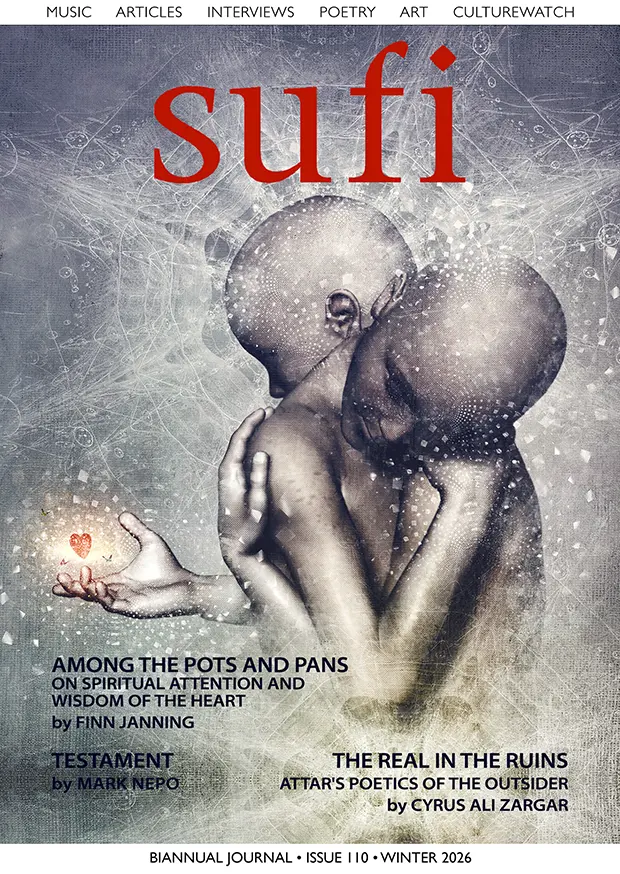SUFI is a biannual, international journal that explores the diverse aspects of mysticism, spiritual thought and practice through articles, interviews, poetry, narratives, art and reviews.
SUFI Journal offers a platform for fresh perspectives that highlight the practical relevance of Sufism and other mystical traditions in navigating modern life.
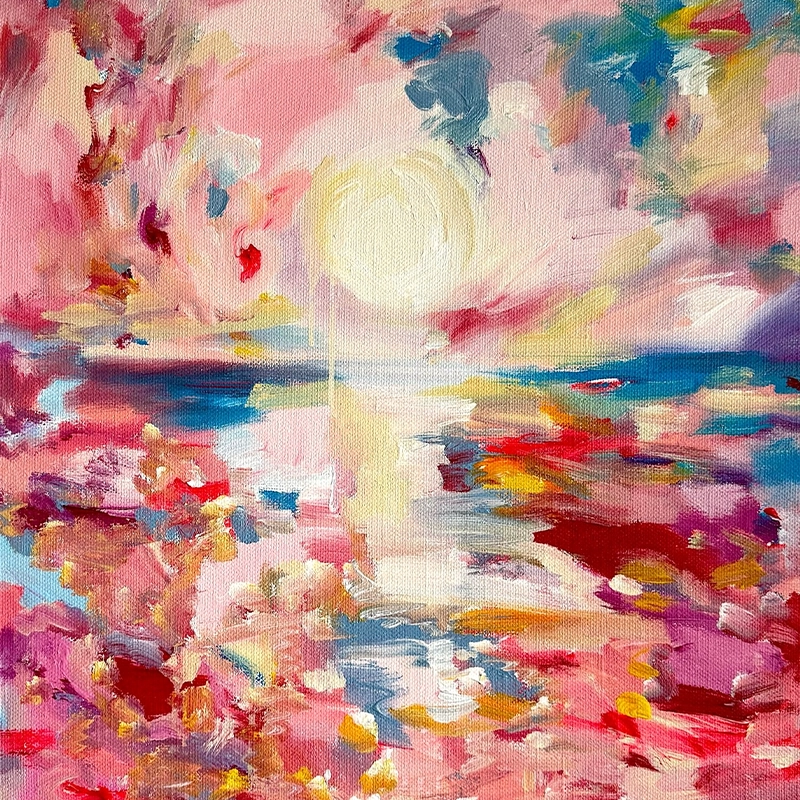
Issue 110
Devotion as the Path of Self-purification
Alireza Nurbakhsh
Broadly speaking, we can be devoted to something or someone and true devotion happens when we voluntarily put the well-being of our object of devotion above our own well-being. In other words, you care about the person you are devoted to more than you care about yourself. It is important to emphasise that a true act of devotion is carried out freely and voluntarily.
Subscribe to read ...
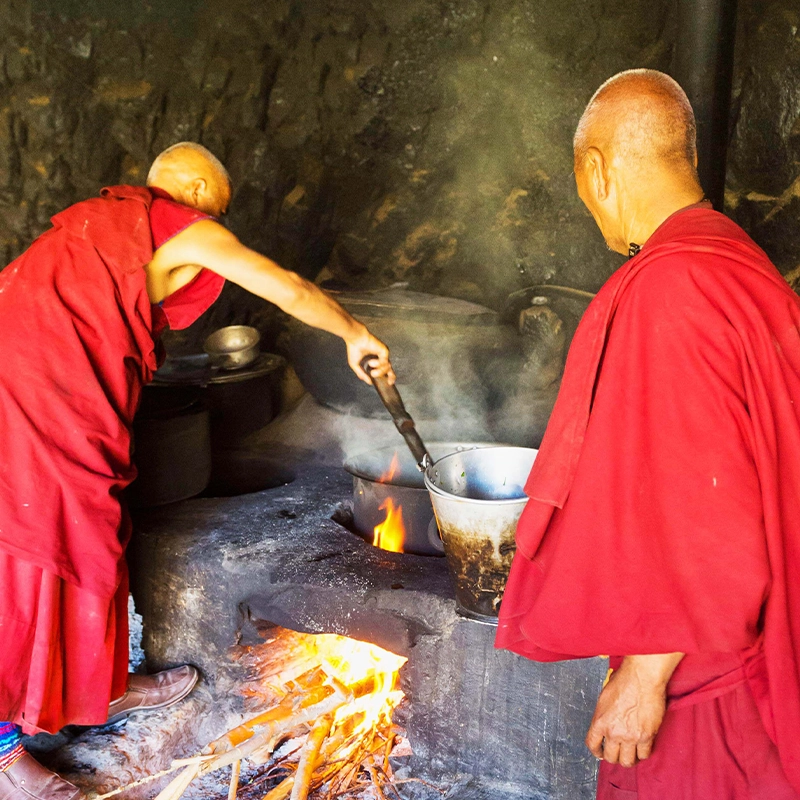
Issue 110
Among the Pots and Pans: On Spiritual Attention and Wisdom of the Heart
Finn Janning
More than five hundred years ago, the Spanish saint Teresa of Ávila reminded her fellow sisters that the divine is not confined to cloisters, silence, or sacred rituals. God, she insisted, is present everywhere—also in the kitchen, also in the midst of ordinary labor. Her message is simple yet radical: the spiritual is not separate from life. Life itself is spiritual.
Subscribe to read ...
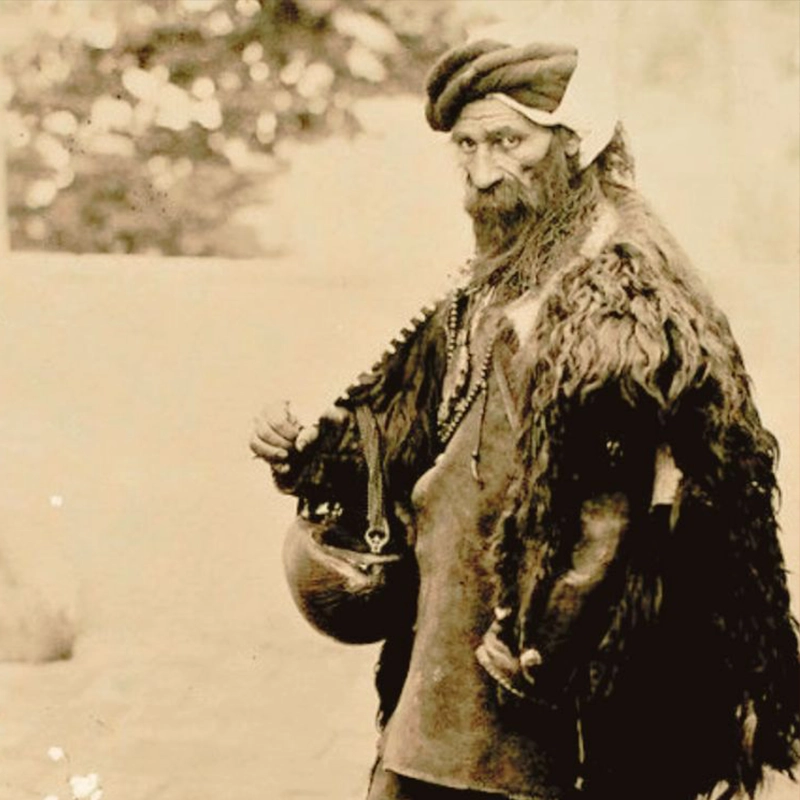
Issue 110
The Real in the Ruins: 'Attar's Poetics of the Outsider
Cyrus Ali Zargar
Love, wine, loss of reputation, sincerity, and risk: The figure of the “outsider” in Farid al-Din 'Attar’s (d. 1221) poetry appears in a web of associations between these five themes. The core idea in such poetry—which 'Attar inherited from a much longer tradition of Sufi outsiders that goes as far back as Husayn ebn Mansur al-Hallaj (d. 922)—is that there is something redeeming in the outcast, something illuminating in the nonconformist. It is as if the outcast offers the truest perspective available in his or her particular lived situation. We can imagine how salient these themes would have been in societies where reputation mattered greatly and often hinged on public displays of piety.
Subscribe to read ...

Issue 110
Testament
Mark Nepo
As a boy, I ran around the
fence of a construction site
with my little buddies.
But I was stopped by a small
hole in the fence. I moved a
stone to stand on, to squint
and look on through. The ex-
cavation looked like a desert.
Landing in college, I looked
through the hole in the fence
of all I was being taught, and
saw the vastness that told me
I am a poet.
Subscribe to read ...

Issue 110
The Futile Getaway
In the golden light of early evening, the bazaar pulsed with life and amid the commotion, a single figure moved with anxious purpose: the trusted servant of King Solomon, his arms heavy with the finest fruits and breads for his master's table. As he turned to leave the market, the servant felt a sudden stillness in the air, as if time itself held its breath. He lifted his gaze and met a pair of eyes—unblinking, ancient, filled with a fire not of this world.
Subscribe to read ...
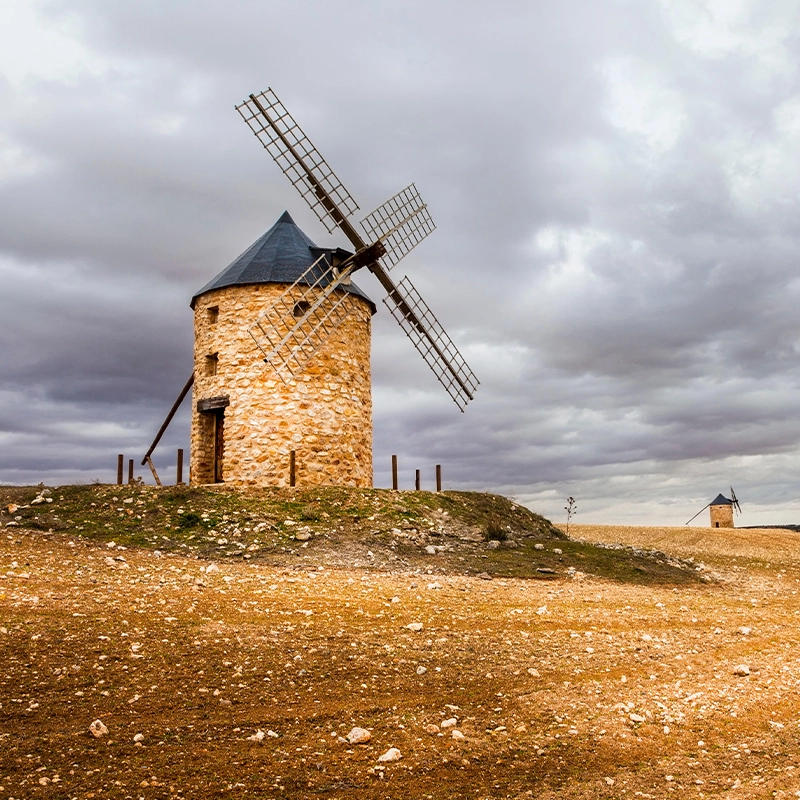
Issue 110
Sufism at the Old Windmill
Each year, as golden fields ripened under the late summer sun, Sheikh Abu Sa’id would lead a caravan of family, disciples, and villagers to a weathered old windmill nestled in the arms of a quiet valley. This was no ordinary errand—it was a journey woven with joy, reverence, and spiritual awakening. The windmill, ancient and solitary, stood like a guard over the surrounding plains, its sails creaking rhythmically as if chanting a silent dhikr in the language of the wind.
Subscribe to read ...
As our world is evolving, so is SUFI being re-imagined and reformulated to be a remarkable, immersive digital experience by featuring poetry readings, podcasts, video, music, and special offerings. Now it is available through an app for mobile phones at an annual subscription price of USD$19.99.
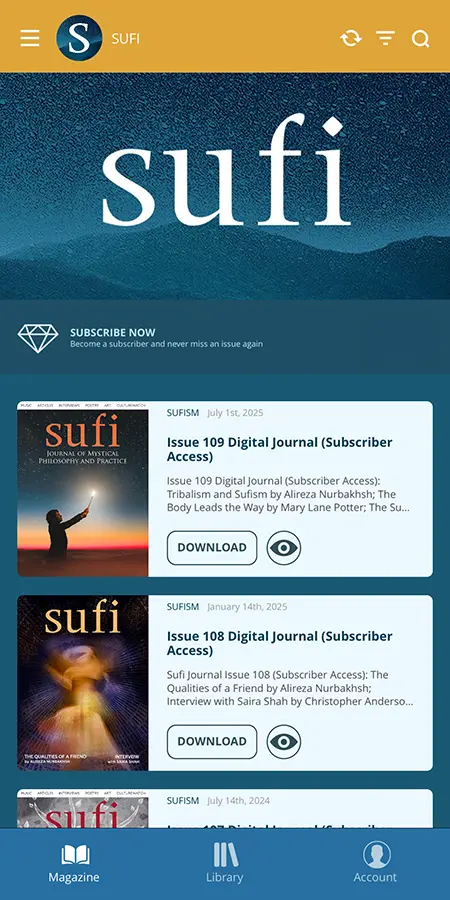 Subscribe Now!
Subscribe Now!Join us on social media for spiritual reflections, heartfelt stories, and timeless poetry. Stay connected to the teachings and the community, wherever you are.
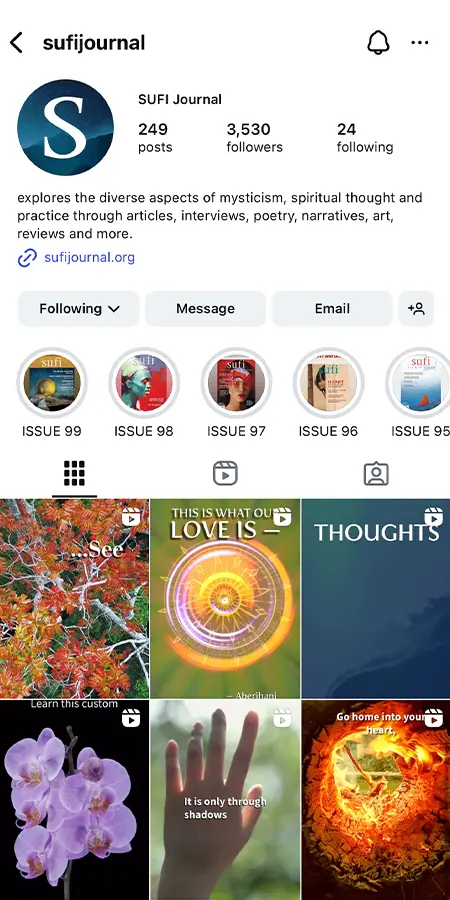 Follow SUFI!
Follow SUFI!
Issue 89
The Guide: Interview with a Sufi Shaykh
Interviewed by Safoura Nourbakhsh
In this interview, Hossein Kashani, one of the shaykhs of the Nimatullahi Order, speaks candidly about the distinct trials of a master/disciple relationship, when a perfected human being commits his or her life to guiding others on the path towards Truth....
Click to download ...

Issue 78
The Meaning of Surrender
Alireza Nurbakhsh
In SUFI’s 2009 winter issue, Alireza Nurbakhsh, Master of the Nimatullahi Sufi Order, explores the meaning of surrender to God. In his discourse, he points out that surrender occurs in the context of fighting or resisting aspects of our life situation....
Click to download...

